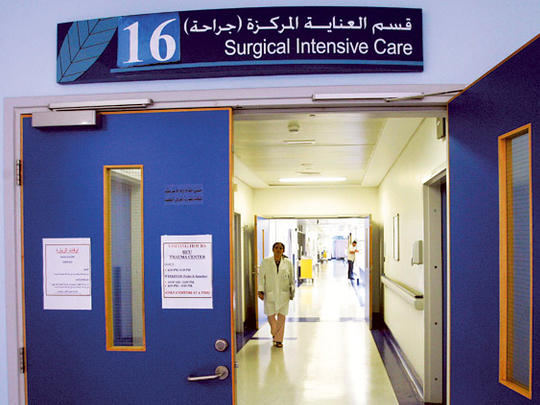
Dubai: The Dubai Health Authority (DHA) announced Monday an ambitious survey titled “Dubai Clinical Services Capacity Plan (DCSCP) 2020”.
It aims to rectify the current lopsided supply-demand ratio in healthcare services, marked by an oversupply of medical services in certain specialties, and to increase efficiency of public and private healthcare facilities in the emirate, the Dubai Health Authority (DHA) announced on Monday.
The survey will be Dubai’s first comprehensive data collection from public and private hospitals, polyclinics, Dubai Healthcare City and diagnostic and primary healthcare centres, and will be conducted from September 2 to October 25.
Part of the Dubai Health Sector Strategy initiative, it is in line with the vision of the Dubai Strategic Plan 2015 which fulfils a number of objectives, including promoting a 70 per cent private and 30 per cent public share in healthcare services.
According to Laila Al Jassmi, CEO of Health Policy and Strategy Sector at the DHA, the lack of detailed information about healthcare services in Dubai has resulted in oversupply and duplication in certain specialties and unnecessary investment in some services.
Speaking to Gulf News, she explained that certain services are either missing or do not meet the demand or are in over supply.
“To ensure that services meet the current demand, we need to identify all services and rectify the ratio.”
She said that the goal of the DCSCP is fivefold.
“To understand the current healthcare market, identify missing services, provide better a database for internal and external investors, direct investments where needed and meet the demand for medical tourism.
“For instance, once the services in over supply are identified, additional licenses for these will not be issued.”
The DHA encourages all private and the free zone healthcare facilities in Dubai to participate in the survey and provide the requested information within the specified time period.
Laila said that the survey will comprise site visits and primary data collection from healthcare facilities.
The data collected with include demographics, patient data (without patient confidentiality breach), cost of services, average length of stay of patients, bed-space capacity, availability of support services like imaging and laboratory services and number of existing specialties and sub-specialties.
Of medical tourism in Dubai viz-a-viz the survey, she said that the information will help establish the number of medical tourists and help introduce new services to attract more.
In a media statement, Qadi Saeed Al Murooshid, the director-general at DHA said, “We will use the data to develop a needs assessment for the next 10 years. The DCSCP will include detailed, evidence-based projections of supply and demand for medical and allied health services in the emirate. “The DCSCP will also help point out the specialties and sub-specialties where investment is needed, thus ensuring demand is rightly fulfilled for the people of Dubai and investors get a better return on investment [ROI].”
Dr Awatif Abuhaliga, head of Policy, Strategy and Planning at DHA, added, the right supply-demand ratio is important in healthcare. “Physicians, surgeons and nurses, need the right volume of cases and case mix to maintain their skills. Similarly, when supply in healthcare is way above demand, healthcare staff would lose their skills over time and the quality of services will drop.”












